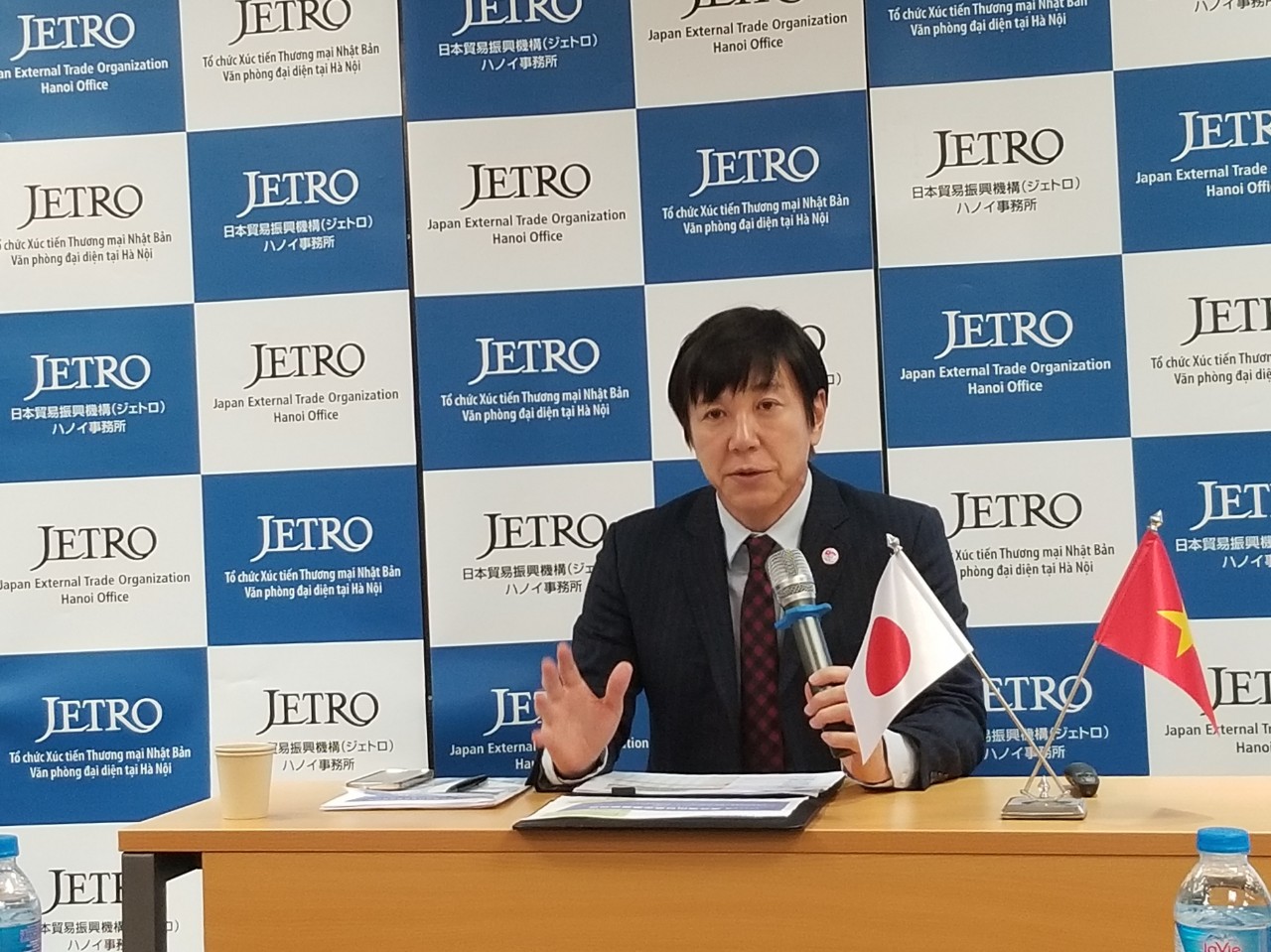Vietnam tops ASEAN as favorite destination for Japanese firms: JETRO
Vietnam remains an attractive market for Japanese firms thanks to its positive growth prospects and sizable population of 100 million.
As many as 60% of Japanese companies plan to expand their operations in Vietnam in the next two years, up 4.7 percentage points from last year, and the highest rate in ASEAN.
| Chief Representative of the Japan External Trade Organization (JETRO) in Hanoi Takeo Nakajima. Photo: Nguyen Tung |
Chief Representative of the Japan External Trade Organization (JETRO) in Hanoi Takeo Nakajima revealed the figures at a press briefing held today [February 13], which were the result of a survey conducted August 22 – September 21 on the performance of Japanese companies abroad in 2022.
In addition, the rate of Japanese firms looking to scale down operations or move to another country stood at 1.1%, down 1.1 percentage points against 2021.
According to Nakajima, 603 Japanese companies took part in the survey in Vietnam, the highest among ASEAN countries.
“This showed their active cooperation and the goodwill that Vietnam’s business environment would continue to improve in the future,” he added.
The JETRO’s representative said 59.5% of the respondents expected profitability, up 5.2 percentage points, and 20.8% anticipated losses, down 7.8 percentage points.
“This showed improvements in their business performance following a difficult period,” he said.
The prospects for 2023 are even better as 53.6% expected a positive year compared to last year, significantly higher than the 47.6% rate recorded in 2022.
“Companies’ speedy recovery from the pandemic and improvements in market conditions are among the key reasons,” he added.
Meanwhile, many expressed concern about rising operating costs in Vietnam, which implies that the country's advantage of cheap labor is diminishing and companies are shifting toward manufacturing high value-added products.
“Vietnam, however, remains an attractive market for Japanese firms, thanks to its positive growth prospects and a population of 100 million,” he said.
Nakajima also pointed out issues that the Government should address to further attract investment from Japanese companies, including the complicated administrative procedures, particularly tax systems, and the lack of incentives for foreign investment.
As Japanese manufacturers in Vietnam are turning to products of high added value, this would require local suppliers to upscale their capabilities.
While the localization rate in the manufacturing sector in Vietnam has been on a steady rise since 2010 and reached 37.3% in 2022, it was far below that of Thailand (57.3%) or Indonesia (47.2%), he stated.
“Local suppliers should continue to expand their production capacity and efficiency to meet requirements from foreign buyers, eventually rising the localization rate in the industry,” he said.
“JETRO in this regard is committed to serving as the bridge to bolster the partnership between Vietnamese and Japanese companies,” Nakajima continued.
Hanoi to transform into an R&D hub In an interview with The Hanoi Times, Nakajima stated that Hanoi and Ho Chi Minh City remain attractive to foreign investors, including those from Japan. Over the past 10 to 15 years, most investments have been poured into Hanoi and its surrounding areas, but as more manufacturing zones have been established throughout the country, the capital has become a hub for research and development (R&D) activities to create high-value and sophisticated products with latest projects from Panasonic or Samsung. Given a shift in investment trends in Hanoi from pure manufacturing to R&D activities, Nakajima urged the capital city to improve its incentive policies to better support the connection between research centers and universities, train a high-quality workforce and address the lack of office buildings for lease. |












